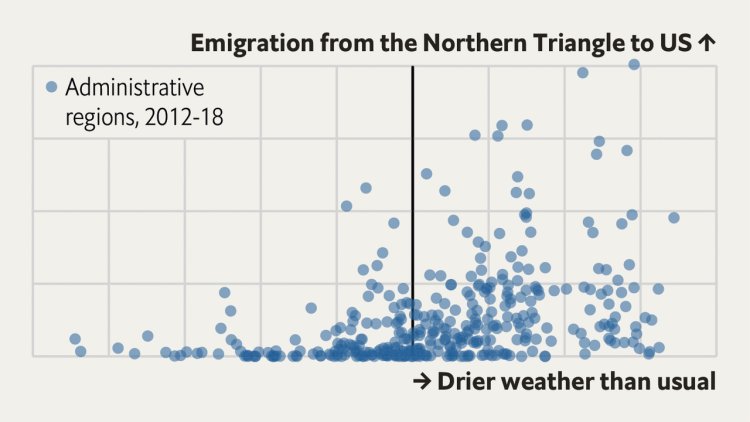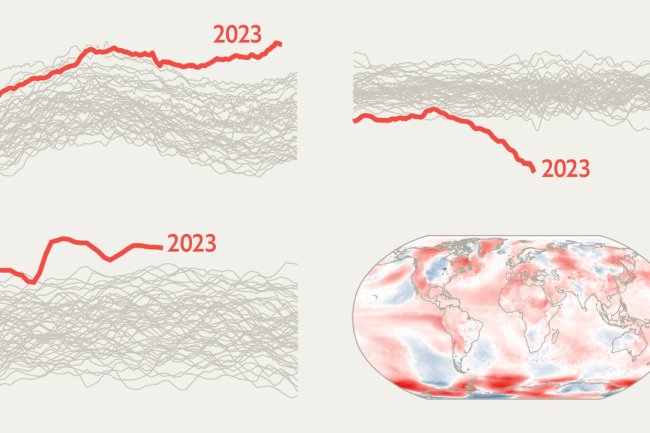Why Central Americans migrate to the United States when they do
Despite its sympathies, Egypt is unlikely to help Palestinian refugeesTo understand why, look at another major conflict in the regionTo read more of The Economist’s data journalism visit our Graphic detail page.A RECORD NUMBER of migrants are trying to cross into the United States over its southern border. Central Americans are among them: in October almost 53,000 people from El Salvador, Guatemala and Honduras were apprehended on the country’s southern border. People from the Northern Triangle, as these countries are collectively known, have many reasons to leave their homes, from poverty and gang violence to the pull of better salaries in the United States. A new paper definitively shows another reason: climate change. Using border-apprehension data from 2012 to 2018, researchers from the universities of Texas and Utah show that more people journey north when there is drier-than-usual weather during a growing season (see chart).Previous studies had linked climate change to migration


Despite its sympathies, Egypt is unlikely to help Palestinian refugees
To understand why, look at another major conflict in the region
To read more of The Economist’s data journalism visit our Graphic detail page.
A RECORD NUMBER of migrants are trying to cross into the United States over its southern border. Central Americans are among them: in October almost 53,000 people from El Salvador, Guatemala and Honduras were apprehended on the country’s southern border. People from the Northern Triangle, as these countries are collectively known, have many reasons to leave their homes, from poverty and gang violence to the pull of better salaries in the United States. A new paper definitively shows another reason: climate change. Using border-apprehension data from 2012 to 2018, researchers from the universities of Texas and Utah show that more people journey north when there is drier-than-usual weather during a growing season (see chart).
Previous studies had linked climate change to migration patterns at a global level, but none had shown it to hold true for Central America. The researchers were able to zoom in on weather as a cause by controlling for other factors including poverty and violence. They obtained information from authorities in the United States about the more than 300,000 people apprehended on the United States’ border between 2012 and 2018, including their home villages and towns.
They then found data on temperature and rainfall for the countries. By mapping the two they saw how drier-than-normal weather during growing seasons predicted emigration. Areas suffering from a particularly arid growing season saw 1.7 times more people travel to the United States than those with typical weather. The correlation was strongest in 2015, when eight of the ten areas with the highest emigration rates were the ones that experienced drier-than-usual growing seasons.
The impact of climate change on livelihoods is particularly acute in the Northern Triangle because large shares of the population are dependent on farming. According to data from the International Labour Organisation, 37% of Hondurans, 32% of Guatemalans and 30% of Salvadoreans of working age laboured in agriculture in 2012. Many other jobs also depend on the sector. Although by 2019 the share of people working in agriculture had fallen in all three countries, this drop is unlikely to cause migration to fall, since extreme weather events are becoming more common.
The administration of President Joe Biden pledged to help Central America tackle the root causes of migration. So far efforts have mainly focused on generating jobs within the region’s private sector. This study shows that more attention needs to be paid to the impact of climate change. Some international organisations, such as the International Fund for Agricultural Development, a UN agency, are running projects to alleviate the effects of the climate on farmers. They include implementing irrigation systems and distributing more resistant crops. But many people will have to find jobs beyond agriculture, whether at home or abroad.■
What's Your Reaction?






















